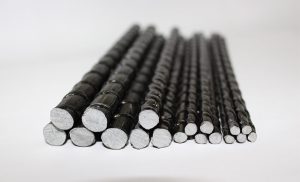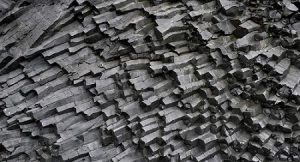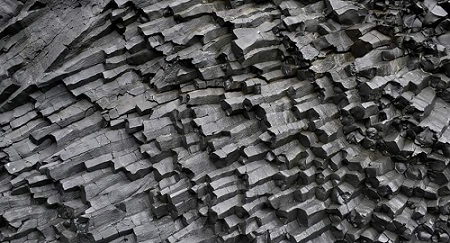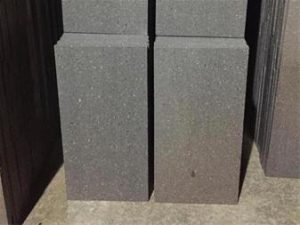What is basalt rebar?
Basalt rebar is usually used as a type of construction material. Basalt stone is a type of igneous and igneous rock that comes out of igneous lands and is formed after the earth’s surface cools down by volcanoes or other natural factors. This stone consists of fine and dense grains and has good mechanical properties. Basalt rebar is used as a type of construction rebar and can be used in various constructions. This type of rebar is considered due to its high resistance to pressure and bending, heat resistance, and suitable anti-bone properties. Also, basalt is a good choice for use in certain environments due to its good resistance to corrosion and chemical effects.
Basalt rebar production history
The history of basalt rebar production is directly related to the history of basalt stone formation and its use in industry. Basalt is an igneous rock that comes from volcanoes and after the earth’s surface cools down, it is formed in different shapes and sizes. The use of basalt as a building material historically dates back to ancient times. In ancient buildings, basalt stones were used abundantly, including in constructions such as settlements, castles, and religious structures.

The use of basalt as a building material increased especially in modern times with the development of construction technology. The production of basalt rebar was also accelerated more independently in the modern era and with the increasing needs of the construction industry. Basalt rebar, as one of the types of rebar with mechanical properties and resistance to special environmental conditions, has found its place in the construction market.
Advantages of using basalt rebar
The use of basalt rebar in the construction industry has several advantages, including the following:
• High mechanical resistance: basalt rebar has a very high resistance to pressure and bending. This important feature facilitates its use in constructions with heavier loads.
• Heat resistance: Basalt has high heat resistance due to its volcanic formation and high cooling rate. This important feature justifies the use of basalt rebar in structures that may encounter high temperatures, such as volcanic structures or industrial structures.
• Corrosion resistance: Due to its mineral purity, basalt has good resistance to corrosion and chemical effects. This feature makes basalt rebar to be effectively used in certain environments such as marine environments or chemical industries.
• Anti-bone properties: Basalt rebar has anti-bone properties, which means resistance to the effects of water and humidity. This is an important feature of its use in structures that deal with humid environmental conditions.
• Light weight: Basalt is lighter compared to some other building materials, especially steel. This feature makes it easy to transport and use basalt rebar.
• Environmental sustainability: Basalt rebar is known as an environmentally sustainable material. This means less greenhouse gas production compared to some building materials.
• Local production: In some areas, basalt is produced locally, which can reduce transportation costs and also increase employment in the production areas.
The use of basalt rebar depends on the specific needs and conditions of each project, but due to the above advantages and features, it may be a suitable option in some construction projects. Follow us for more information about gray basalt stone.
Application of basalt rebar
Basalt rebar is used as a building material with suitable mechanical and physical properties in the construction industry and various infrastructures. Some of the important applications of basalt rebar are:
• Earthquake-resistant constructions: due to its high mechanical resistance and anti-bone properties, basalt rebar is used in constructions located in earthquake-prone areas. This type of rebar can increase the ability to absorb earthquake energy and help the structure resist earthquake forces.
• Marine constructions: Basalt rebar is used in the construction of marine structures and equipment such as ports, marine bridges, and oil structures due to its resistance to corrosion and chemical effects.
• Industrial structures: due to its resistance to heat and corrosion, basalt rebar is used in chemical and metal industries that face harsh environmental conditions.
• Bridges and tunnels: Basalt rebar is used in the construction of bridges and tunnels due to its mechanical resistance and environmental stability.
• Residential and commercial buildings: In residential and commercial buildings, basalt rebar is used as a construction option to increase the strength and stability of the building.
• Energy projects: In energy projects such as power plants, basalt rebar is used as a construction material due to its resistance to thermal and pressure conditions.
• Water and sewage facilities: As a material with good corrosion resistance, basalt rebar is used in the construction of water and sewage facilities.
• Defense projects: Basalt rebar may be used in buildings and structures that require high impact resistance.
Basalt rebar is a good choice in cases where we need durable and stable materials due to its many features and resistances. Be with us to sell basalt stone.
Comparison of basalt rebar with steel rebar
Comparing basalt rebar with steel rebar requires considering the characteristics and strengths and weaknesses of each. Below are some key features and their comparison:
• mechanical resistance:

Basalt rebar: has high mechanical resistance to pressure and bending.
Steel rebar: also has high mechanical resistance to pressure and bending, and is usually produced according to various standards such as ASTM or DIN.
• Resistance to corrosion and chemical effects:
Basalt rebar: has good resistance to corrosion and chemical effects.
Steel rebar: usually requires coatings and protective methods to prevent corrosion.
Weight and lightness:
Basalt rebar: generally lighter than steel rebar.
Steel rebar: It is heavier than basalt, but it is still widely used due to its high resistance.
• Environmental sustainability:
Basalt rebar: generally known as an environmentally sustainable material.
Steel rebar: The production, use, and disposal of steel rebar may lead to environmental problems.
• Price:
Basalt rebar: usually has a higher price than steel rebar.
Steel rebar: Due to the wide range of production and use, it may have a more affordable price.
• Use in special conditions:
Basalt rebar: It is mostly used in buildings and structures that require resistance to earthquakes, corrosion, and heat.
Steel rebar: It is used in most construction projects.
The decision to use basalt rebar or steel rebar depends on the type of project, mechanical and environmental requirements, budget, and other factors. In many cases, the combination of different materials may also be used to improve the properties of the structure.




